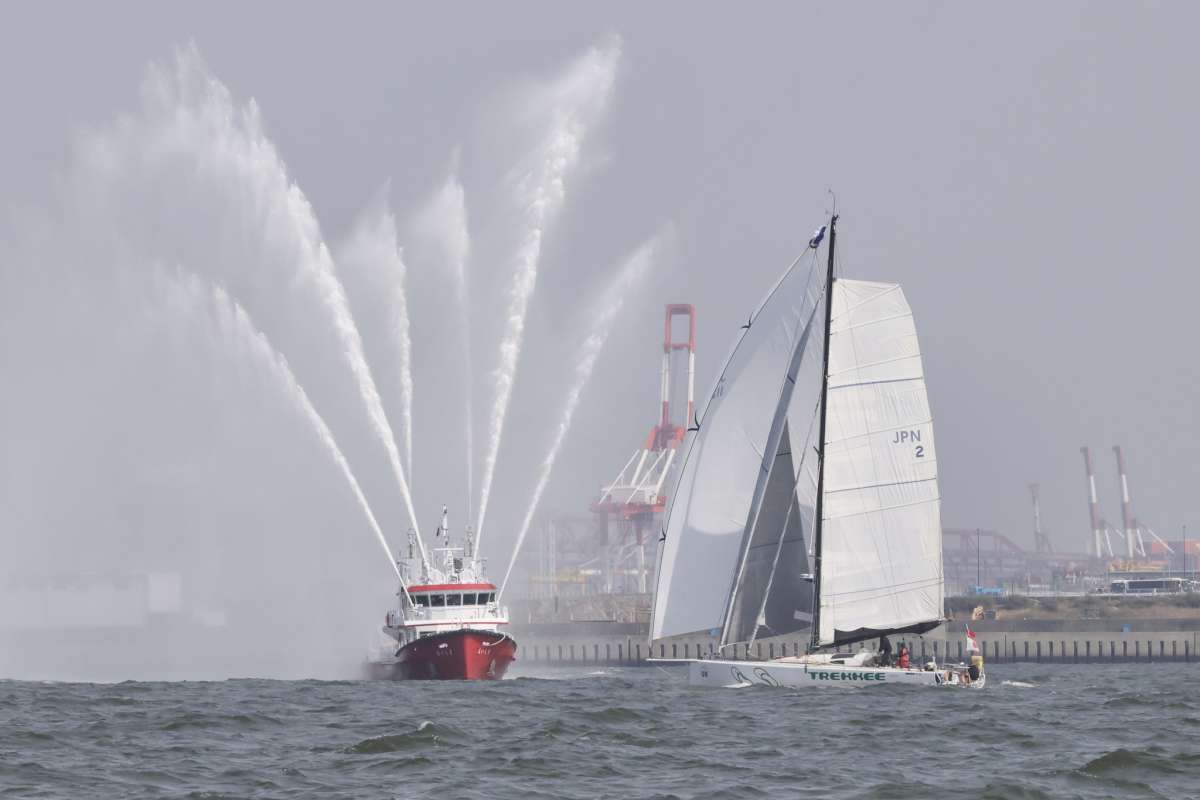|
GREAT Britain has taken the lead, making up ground on familiar rival Garmin in second position* after it had to carry out a repair to its spinnaker and peel to its medium-weight kite. The wind has lightened further in the Solomon Sea with many teams peeling to their lightweight spinnakers, but there has been less squall activity on day 3 of the Da Nang New Discovery of Asia Race. The heat is on in the standings, with prior leader Qingdao now in third and the top five teams all within 5.5 nautical miles of each other, but the wind is forecast to die further as the fleet reaches the Doldrums. Skipper of fifth-placed LMAX Exchange, Olivier Cardin, explained the tactical decisions facing the fleet. “Our first objective was to be with the leading group at the first mark. We succeeded as we passed it last night just 2 nautical miles behind the leader. Now the game is more open and risky. We are sailing downwind on starboard tack with our lightweight spinnaker in a dying wind. “We are now choosing to protect the right side of the course, expecting a veering of the wind and a better position before gybing. But the risk of this choice is to have less wind closer to the low pressure, so we will see later. “Life on board is hard due to the heat but the team is working hard on performance. New leggers are picking up things very fast with the coaching of old crew members,” Olivier added. Peter Thornton, Skipper of GREAT Britain, described the conditions the fleet was competing in. “We're gently teasing the boat onwards, hoping that we can hold the wind as far north as it will let us before it becomes a lottery with wind lines and moving cloud gusts. “The GRIB weather files show the wind dying the further north we all get, so the fleet will likely compress again and it will be oh so much more fun! Every minuscule change makes a noticeable difference with us so closely matched. If you take your eye off the ball you'll soon find out that your competitors have either opened or closed the gap, or bearing swiftly, and then it's a mission to recover! So, here's to hoping for a bit of luck,” Peter said. Clipper Race Meteorologist Simon Rowell said that the squall activity will increase quite dramatically as the fleet nears the ITCZ (Inter Tropical Convergence Zone), and also warned of a tropical depression forming in around five to seven days’ time to the north-west. “This is a relatively long range forecast for an unstable system, so will almost certainly not pan out exactly as the GRIB files say, but it is an indication that the atmosphere is unstable and that some form of circulation will probably develop,” Simon explained. – Clipper Race Media |

On board during the Clipper Race. Photo Clipper Ventures.























